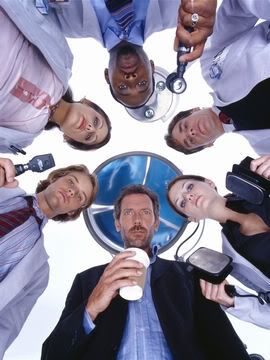 In all my 9 years in UP, I don't believe I've ever heard, seen or read the term God-fearing." My classmates and acquaintances never used it and certainly not the professors. Surprisingly, in my 4 years of teaching in the Jesuit university right across, I've never heard the term used either.
In all my 9 years in UP, I don't believe I've ever heard, seen or read the term God-fearing." My classmates and acquaintances never used it and certainly not the professors. Surprisingly, in my 4 years of teaching in the Jesuit university right across, I've never heard the term used either.This morning I asked my students and they don't recall having been taught that God should be feared, not even in their Theology class. But then Jesuits have traditionally been very liberal, especially when it comes to academic freedoms.
So, imagine the extent to which my eyes rolled over and over and over when I kept seeing this term, "God-fearing," used in another university in Intramuros, where I commenced teaching this semester. In one essay quiz after the next, my students kept mentioning "God-fearing" in answer to questions about politics in general and Philippine society in particular. Although I received a Catholic education during my elementary and secondary years, my university years were the most formative when it came to my view of religion. When we talked of God or the Church, it was almost always in a pejorative light. God was the instrument of colonial oppression. God is the opium dealer of the doped - and so tamed - masses. And so you can imagine my hackles raise when I encountered "God-fearing" in this Intramuros school, where students come from middle to lower-middle class backgrounds. Although the premier state university welcomes young people of various socio-economic classes, I now realize it is also the "breeding ground" of not only "destablizers and naked runners" (see post below) but also of a particular intellectual elite, whose basic values and norms are VASTLY different from the majority of the Filipino.
And so, in this Intramuros university, I met the ordinary Filipino, and I found that she fears her God. Regardless of my own ambiguous thoughts on deities, one wonders why this is so. Perhaps it reflects the ordinary Filipino's relationship with things unseen, with fate, with the cosmos. If God is to be feared then it pays to be obedient under his constant surveillance. If God is to be feared then he probably metes out punishment for those who fail to conform to his wishes. If God is to be feared then one must be wary of his capricious will. If he decides to make life hard for you, then you've no choice but to accept your fate, or maybe pray harder.

 Unlike many pompously self-important French films,
Unlike many pompously self-important French films, 1. You come to believe that hyperintelligence is cool and hyperintelligent assholes cooler.
1. You come to believe that hyperintelligence is cool and hyperintelligent assholes cooler. Wow. That was probably one of the most dramatic World Cup finals in recent history. We all witnessed that incomprehensible
Wow. That was probably one of the most dramatic World Cup finals in recent history. We all witnessed that incomprehensible  So. It takes a simmering sex god in azure tights and crimson undershorts to finally rouse me from my blogging stupor.
So. It takes a simmering sex god in azure tights and crimson undershorts to finally rouse me from my blogging stupor. Watching this film is not a bit like willingly inserting a sliver of wood under your fingernail then sitting back and stoically wait 'til it bleeds, hope that it bleeds. And when it does, willing the blood to seep out from under your nails and then marvel at the redness. Proof that you're human, proof that you're...
Watching this film is not a bit like willingly inserting a sliver of wood under your fingernail then sitting back and stoically wait 'til it bleeds, hope that it bleeds. And when it does, willing the blood to seep out from under your nails and then marvel at the redness. Proof that you're human, proof that you're...